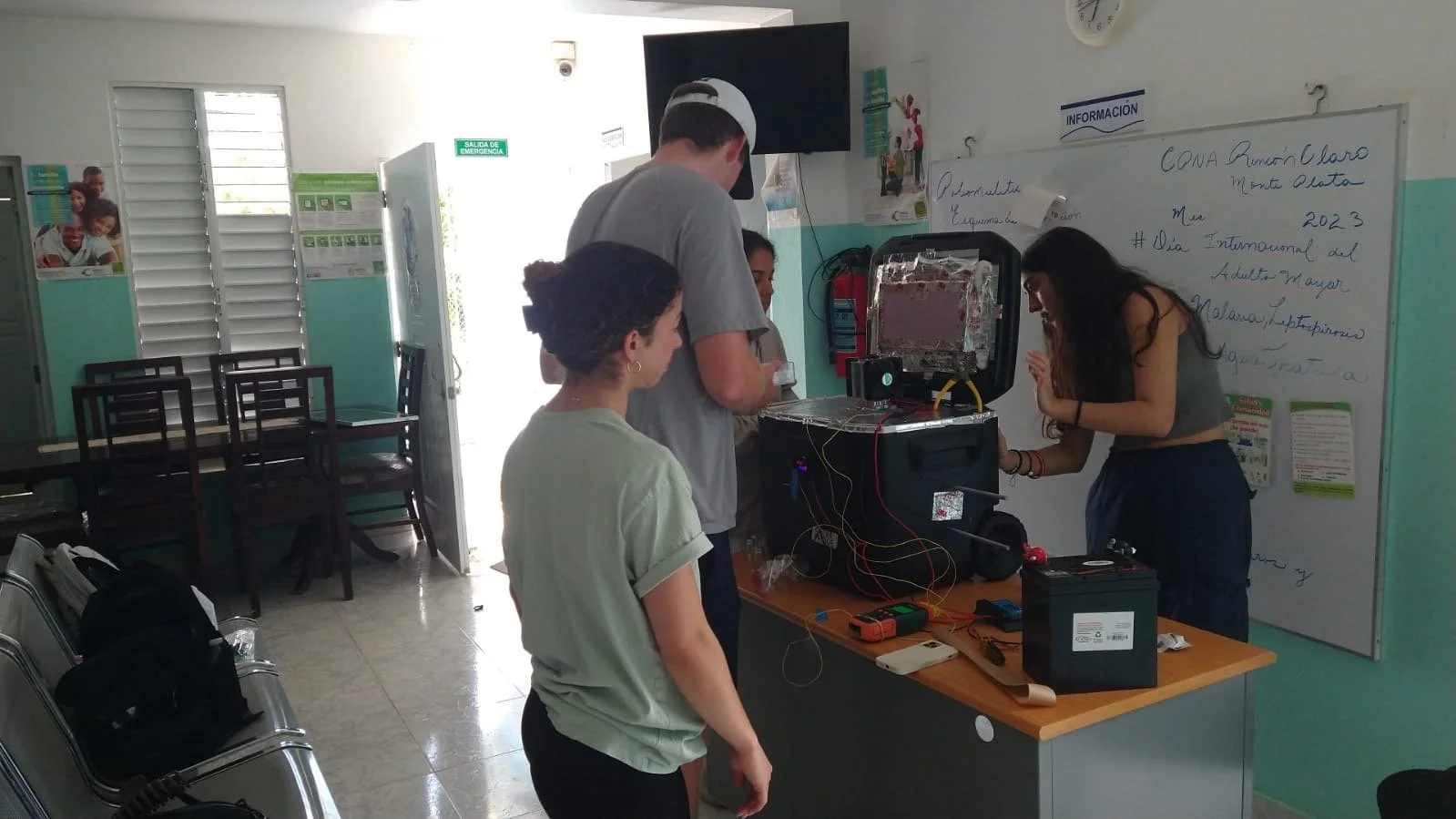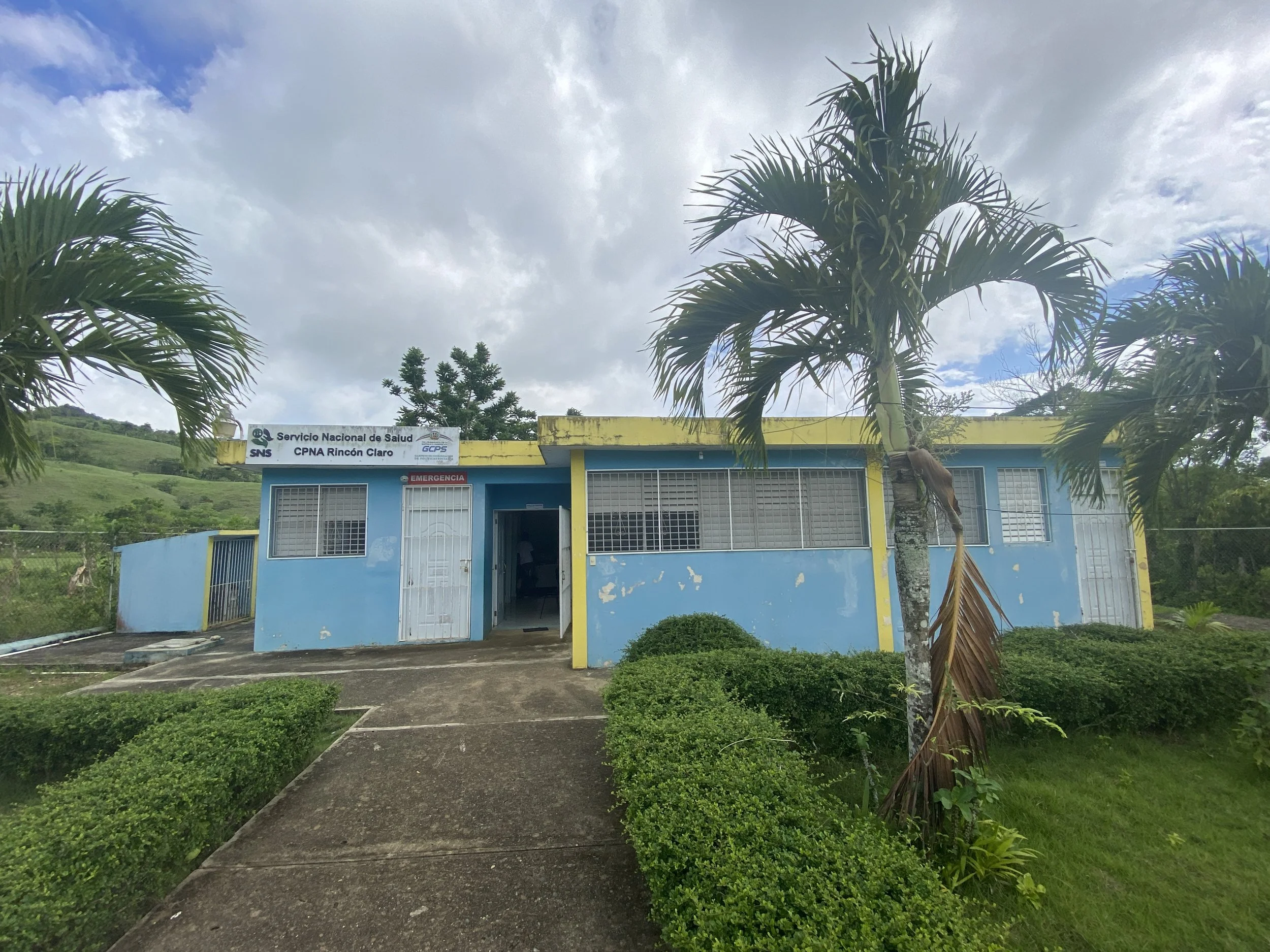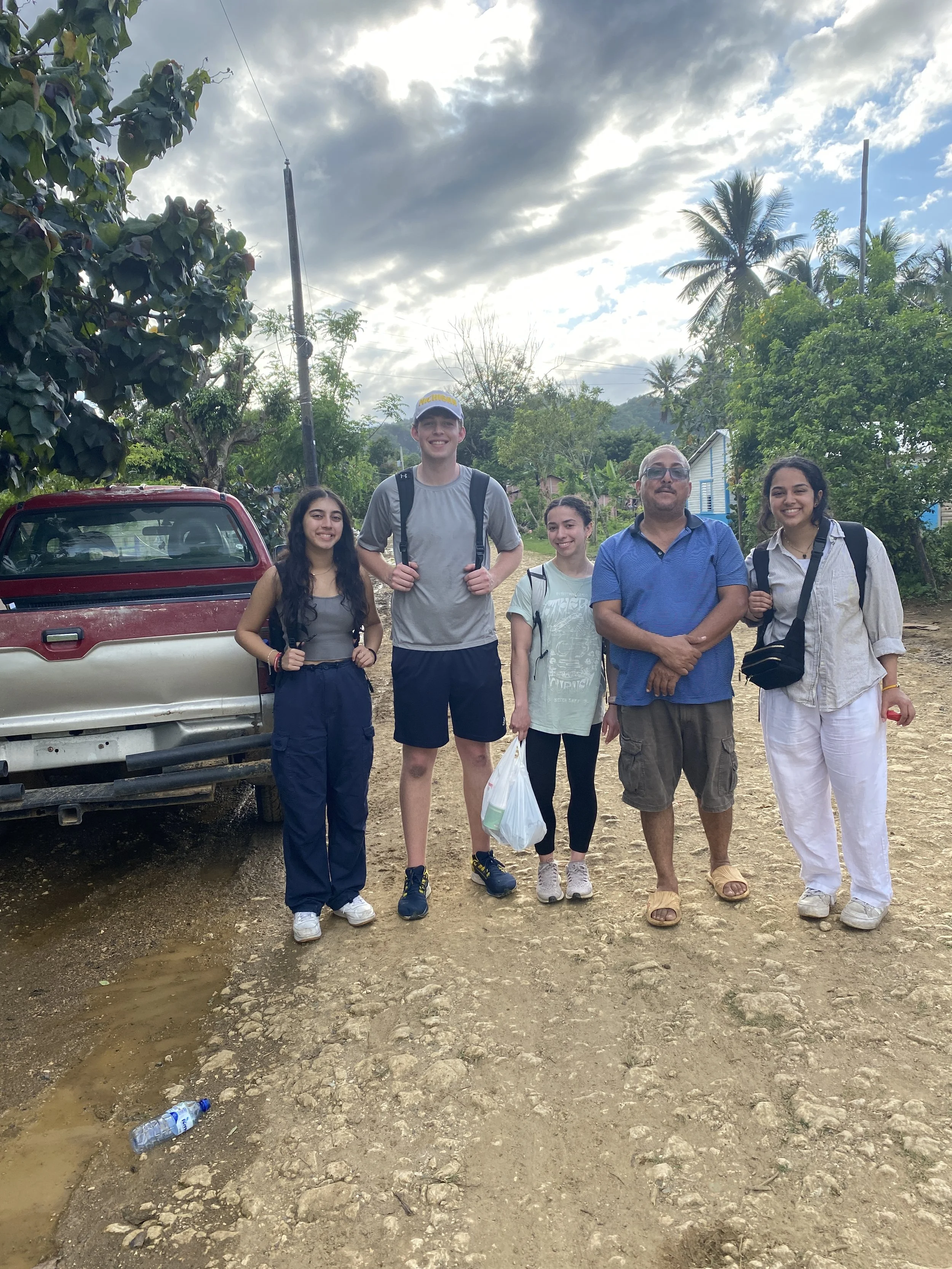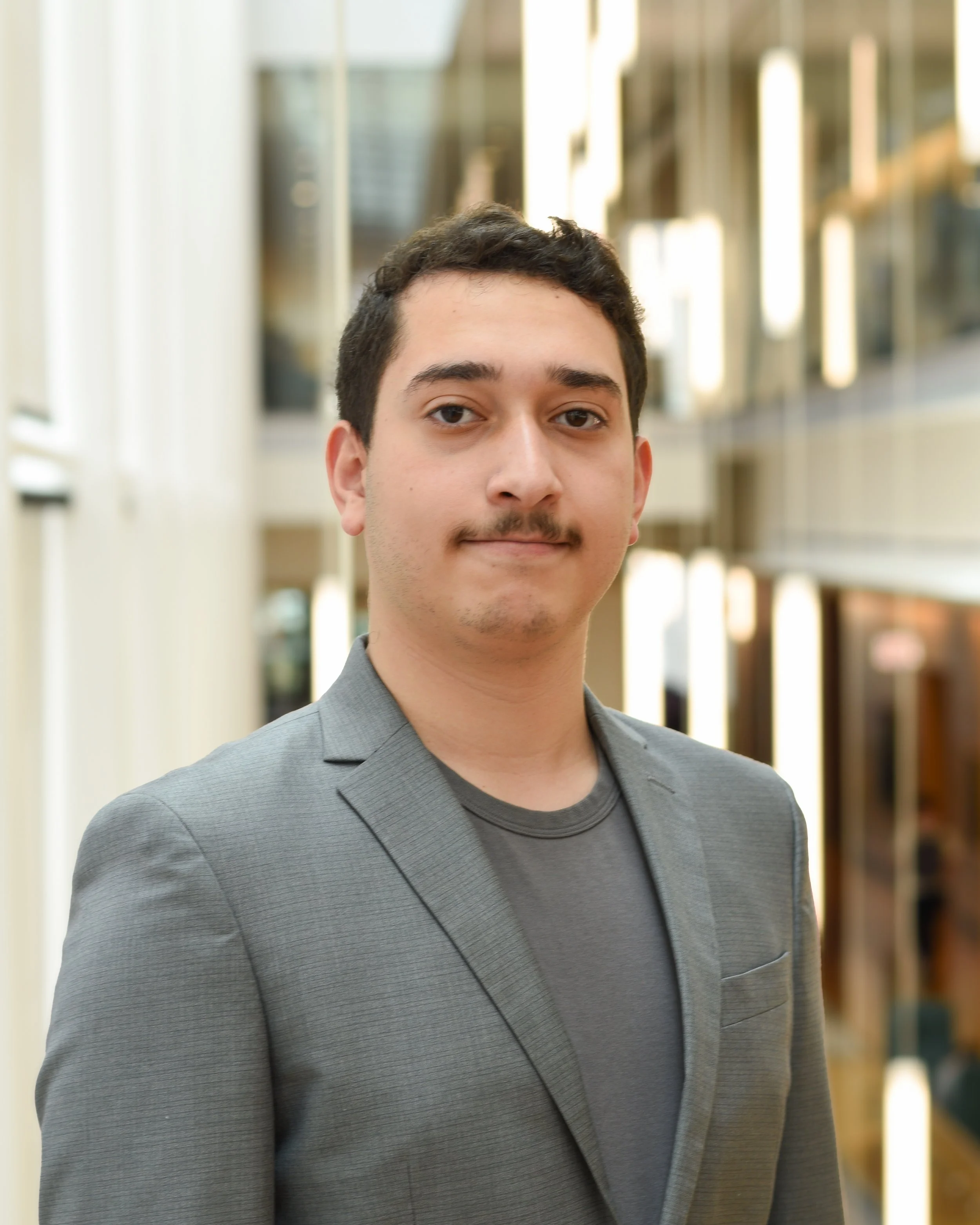Solar Fridge
Designing a solar-powered refrigerator to store vaccines
Project Background
Mission
More than 1.5 million people die from vaccine-preventable illnesses each year due to limited access to vaccines. Areas with warm climates and limited electricity access are particularly impacted as vaccines need to be kept at a certain temperature range to remain viable.
Therefore, there is a need to develop a sustainable and cost-effective vaccine storage system to maintain vaccine viability during power shut-offs.
Community Partner
During the summer of 2017, our team performed a problem definition trip with our community partners in Rincon Claro, a small village in the Dominican Republic. We learned that their local clinic does not have access to reliable on-site vaccine storage, making the ultimate goal of Solar Fridge a perfect solution. We also visited neighboring communities and concluded vaccine storage is an overarching problem in this region. This trip helped Solar Fridge establish a long-term connection with Dr. Jorge Ramirez, the doctor of Rincon Claro. After making promising progress with our prototype, Solar Fridge traveled again to Rincon Claro in May 2024 to test our prototype and receive feedback on our developments.
Design Requirements
User Need
Design Requirement
Design Specification
Vaccines viability is maintained so there is no waste
Maintain vaccine viability during power shut-off
Uniform 2°C and 8°C [1] temperature range for 72+ hour holdover time [2] at maximal 43°C ambient temperature
Fridge must be affordable for all clinics
Cost effectiveness
Manufacturing + shipping costs <$900
Nurses/Doctors need to easily see internal temperatures of fridge
Provide feedback and alerts
Indicator for temperature excursions outside 2°C and 8°C
Displays present, max, min temperatures
Stores past temperatures with 1 measurement/30 min [3]
Follow safe storage conditions for vaccine viability
Storability and organization
Vaccines stores 2-3 inches for unit boundaries [3]
Storage of 50+ vaccines
Separation for 9+ vaccine types [4]
Project History
The origins of Solar Fridge began as a Senior design project in 2008 and transitioned into an interdisciplinary team within M-HEAL a few years later. There have been several iterations of the prototype since the project’s creation. Ultimately, the team has focused on creating a solar-powered fridge, utilizing solar panels and a rechargeable battery.
By 2023, our two engineering subteams—Temperature Control and Electrical—created a combined low-fidelity prototype based on extensive brainstorming and material research. The Temperature Control subteam focused on constructing a highly insulated and portable cooler while the Electrical subteam made a cooling system using a Peltier Device and PID controller. Each of these subsystems was tested individually and adjusted according to the results.
Winter 2023 Prototype
During this time, our Business subteam developed a new website platform for Solar Fridge and guided the team to the Michigan Business Challenge Finals, a competition for new business proposals.
From Fall 2023 to the present, the engineering subteams have worked on creating a new high-fidelity prototype based on the testing results of our Winter 2023 low-fidelity prototype. The Temperature Control subteam purchased a larger, more transportable cooler and integrated upgraded insulation materials. The Electrical subteam converted the main power source of the cooler to solar panels. We continue to make design upgrades, test new changes, and implement feedback from our trip to Rincon Claro in May 2024. Through this time, the Business subteam led us through the semifinals of the Rice360 global health design competition, raised travel funds, and planned our international trip to the Dominican Republic for testing of our high-fidelity prototype.
Winter 2024 Prototype
Prototype Top View
Leads
Maggie Robbins (she/her)
Solar Fridge Co-Lead
Chemical Engineering: 2026
Rachel Estvold (she/her)
Temperature Control Lead
Biomedical Engineering: 2027
Aayushi Wadhawan (she/her)
Solar Fridge Co-Lead
Public Health: 2027
Amrita Kondur (she/her)
Business Lead
Neuroscience: 2026
Saad Alrazzi (he/him)
Electrical Lead
Electrical Engineering: 2027
team advisor
Dr. Solomon Adera is a professor in the Mechanical Engineering Department. He earned his Ph.D. in Mechanical Engineering from MIT and was a postdoctoral researcher at Harvard prior to his position at UMich. His research interests include heat and mass transfer phenomena, and he teaches the undergraduate mechanical engineering heat transfer course. He has shown a strong commitment to serving disadvantaged communities throughout his career, and he has served as Solar Fridge's team advisor since 2023.
Team Updates
Solar Fridge recently traveled to our community partner clinic in Rincón Claro, Dominican Republic in May 2024. Our team was able to conduct prototype testing, gaining valuable feedback from healthcare professionals in the clinic who will primarily interface with the vaccine cooler. Additionally, our team was able to reestablish our relationship with the community and update our understanding of their vaccine storage and transportation needs, particularly in light of changes since the COVID-19 pandemic.
Solar Fridge also competed in the final round of the 2024 Rice360 Undergraduate Global Health Technologies Design Competition. The team has been diligently implementing feedback from travel and competitions to optimize our vaccine fridge to best fit the needs of our community partner.



References
[1] NSF 456 vaccine refrigerators and freezers testing. UL. (n.d.). Retrieved December 1, 2021, from https://www.ul.com/services/nsf-456-vaccine-refrigerators-and-freezers-testing.
[2] E. Maritz, personal communication, October 3, 2021
[3] Centers for Disease Control and Prevention. (2019, July 11). Vaccines storage and handling toolkit. Centers for Disease Control and Prevention. Retrieved December 1, 2021, from https://www.cdc.gov/vaccines/hcp/admin/storage/toolkit/index.html.
[4] Dr. Jorge Ramirez, personal communication, November 13, 2021
[5] “How to design a peltier module system,” CUI Devices, 02-Apr-2019. [Online]. Available: https://www.cuidevices.com/blog/how-to-design-a-peltier-module-system. [Accessed: 06-Apr-2023].














